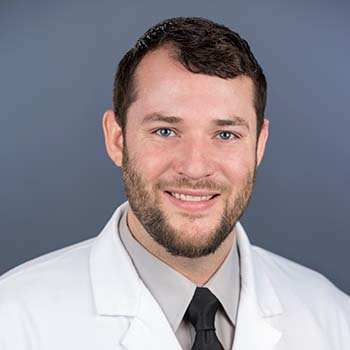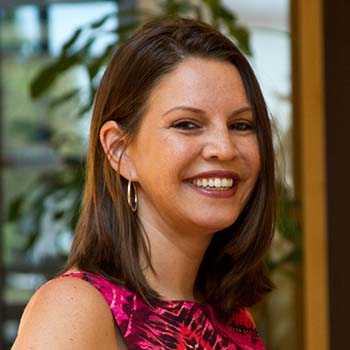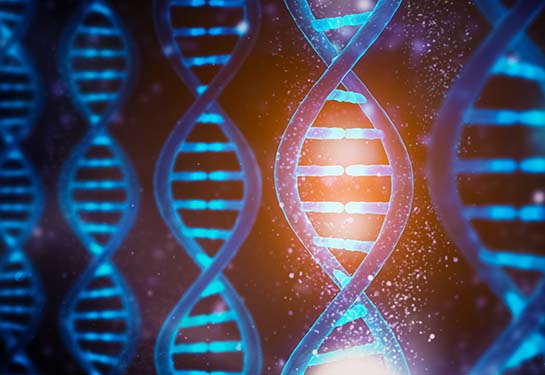Researchers awarded $1.4 million to develop gene therapy for rare genetic condition
Grant from the California Institute for Regenerative Medicine will fund research into CDKL5
UC Davis researchers have been awarded a two-year, $1.4 million grant from the California Institute for Regenerative Medicine (CIRM) to study CDKL5 Deficiency Disorder (CDD), a rare genetic condition.

Kyle Fink, an assistant professor in the Department of Neurology and Jill Silverman, a professor in the Department of Psychiatry and Behavioral Sciences, will lead the project. The goal is to develop a new method for treating CDKL5 using the gene editing tool CRISPR.
The research proposal was submitted to CIRM through the UC Davis Gene Therapy Center, an IMPACT center with the Office of Research. Both Fink and Silverman are also UC Davis MIND Institute faculty members. The funding is from CIRM’s DISC2 Quest program, which supports the discovery of new gene therapy technologies for conditions such as epilepsy, intellectual disability and autism.
What is CDKL5 Deficiency Disorder?
CDD is caused by changes in the CDKL5 gene. The rare condition is characterized by seizures and developmental delays. The seizures often start early – sometimes in the first week of life. The delays can affect motor, speech and brain function. An estimated 1 in 40,00 people are affected by CDD.
CDKL5 is a protein located on the X chromosome. CDD predominantly affects females, as they have two X chromosome copies. The condition is four times more common in females than in males, who express a single copy of the X.
A new therapeutic approach to “turn on” the CDKL5 gene
“If you have an X-linked condition, such as CDD, 50% of the cells will express the good copy and 50% will express the altered copy,” Fink explained.
All cells still have a good copy of the CDKL5 gene – even if it’s not expressed. The goal for Fink, Silverman and their teams is to find a way to activate that gene’s function, or expression.
Julian Halmai, a postdoctoral scholar in the Fink Lab, was the first to demonstrate that epigenetic editors such as CRISPR could be used to “turn on” a gene from the inactive X chromosome.
“He was one of the first ever to show that this could actually be done in a female cell,” Fink said.

The project is a collaboration among the interventional genetics team members at the MIND Institute. In addition to Fink and Silverman, the team includes David Segal, professor of pharmacology, biochemistry and molecular medicine, and Roy Ben-Shalom, assistant professor of neurology. This line of research also builds on the work done by two postdoctoral fellows: Anna Adhikari and Nycole Copping in the Silverman Lab.
“The collaborative efforts of the Program in Interventional Genetics are addressing a range of neurodevelopmental conditions with intellectual disability, autism and co-occurring epilepsy. CDKL5 is one of the few to continue to move forward with outstanding promise,” Silverman said. “The MIND Institute would like to move CDD research to the point of human clinical trials. This is a game-changing, exciting time in our laboratories and for the patient communities, as our teams aim to advance a transformational therapy, for both the newly diagnosed and those living with the condition for years.”
Key Partnerships to Support Gene Therapy Research
The work on CDD has been supported for more than four years by the Loulou Foundation, a nonprofit focused on research and development of therapeutics for CDD.
“We are delighted to learn of the CIRM award to Dr. Fink and his team to enable the continuation of their groundbreaking work on X reactivation of the CDKL5 gene as a therapeutic approach to the treatment of CDKL5 Deficiency Disorder,” said Daniel Lavery, chief scientific officer of the Loulou Foundation and director of the CDKL5 Program of Excellence in the Orphan Disease Center at the Perelman School of Medicine, University of Pennsylvania.
The researchers hope that developing a new method for treating CDKL5 will have a transformative impact on females affected by the condition. In addition, it could provide a platform for the approximately 38 other X-linked intellectual disabilities that predominantly affect females.
Read a more in-depth story about this CIRM award at the Office of Research website.






